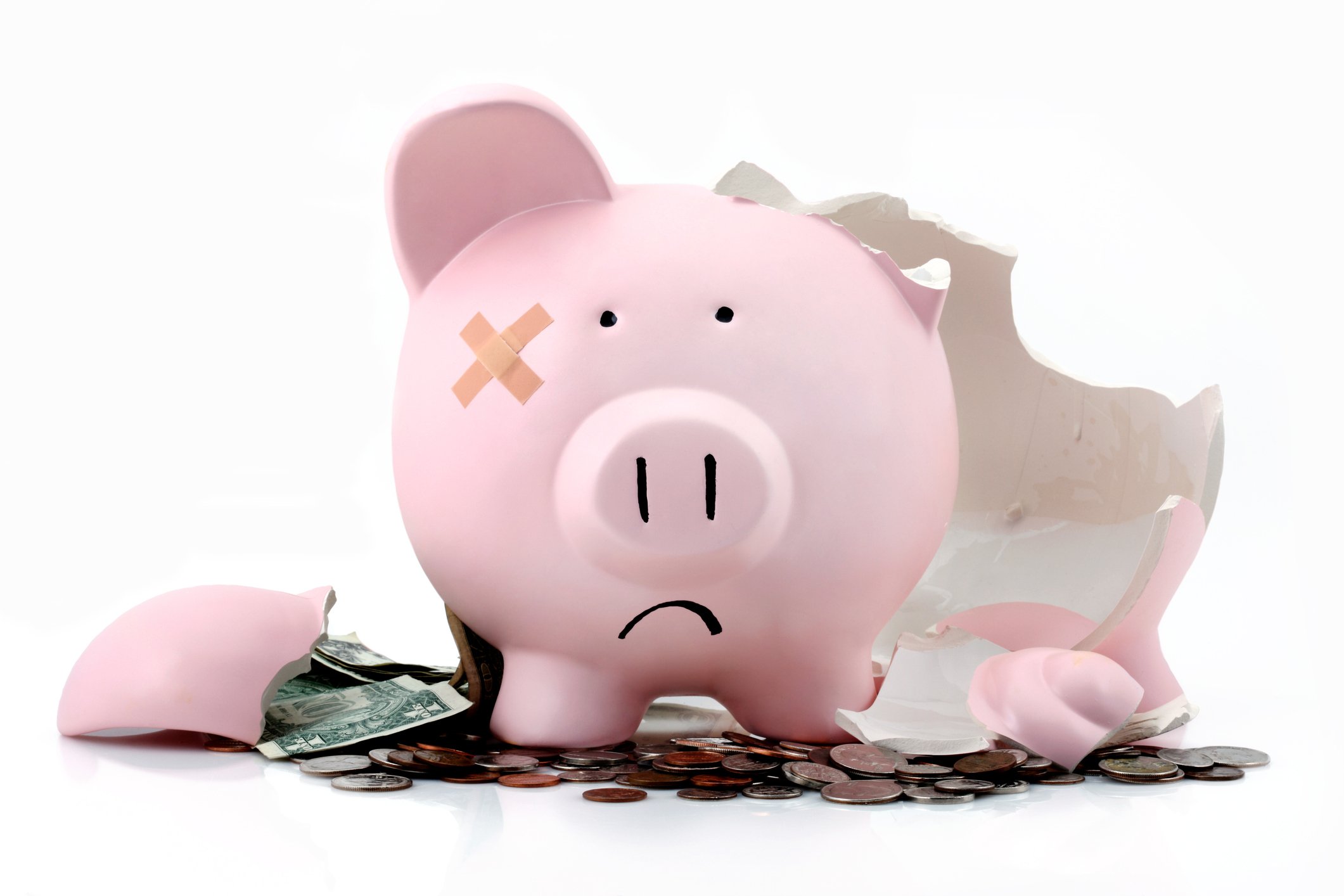
Source: Flickr user Simon Cunningham
When it comes to investing in dividend stocks, quality is always the most important consideration. If a company's business is faltering or its industry is changing dramatically and that's about to cause sales to plummet, then no amount of dividend yield is likely to make up for the losses that could occur in a shaky company's share price.
This is especially true in healthcare because dividend-paying healthcare stocks always face the threat of falling sales tied to expiring patents. Because this makes investing in dividend paying healthcare trickier than investing in other sectors, let's consider some of the most widely-owned dividend-paying healthcare stocks and see if one may be a better investment than another.
No. 1: GlaxoSmithKline (NYSE: GSK)
First up is global healthcare giant GlaxoSmithKline, which boasts an eye-popping dividend yield of 5.8%.
While GlaxoSmithKline's dividend yield is enticing, investors might want to avoid the temptation and hold off on including this one in their portfolios.
GlaxoSmithKline's top selling drug is Advair Diskus, one of the most widely used drugs for the treatment of respiratory conditions like asthma. Patents protecting its Diskus inhaler are set to expire next year.
Assuming that legal wrangling can't delay generic competitors and that those generic drugmakers can craft a variation of Advair Diskus that is similar enough to win over regulators, sales of Advair Diskus could soon tumble.
If so, then investors could take it on the chin because Advair Diskus' annualized sales total $4.8 billion, $2.4 billion of which come from the U.S. That works out to about 20% of GlaxoSmithKline's revenue.
The risk to Advair Diskus is overwhelmingly behind GlaxoSmithKline's high dividend yield. Given that GlaxoSmithKline recently suggested that U.S. Advair Diskus sales could drop below $300 million by 2020 if generics do win approval, this stock poses more risk to investors than the average healthcare stock.
No. 2: Pfizer (NYSE: PFE)
While GlaxoSmithKline could soon suffer the pain associated with a high profile patent loss, Pfizer has already "been there, done that."
The patent on Pfizer's best-selling cholesterol medicine Lipitor expired at the end of 2011, and sales of the drug, which at one point totaled roughly $13 billion annually, have fallen to about $1.8 billion since.
The drop-off in Lipitor sales has caused many investors to avoid Pfizer over the past few years, but a corner may be turning for the company. If so, then taking a long term position in Pfizer may prove savvy.
Thanks to Lipitor's sales stabilizing and fast-growth for new drugs including Ibrance, which treats advanced breast cancer, and the anticoagulant Eliquis, Pfizer's sales should start growing again in 2016.
Assuming that happens, Pfizer's post-Lipitor cost-cutting should allow it to deliver better margins as rising sales are leveraged against fixed costs, in turn giving the company more room to begin boosting dividend payouts.
Pfizer's acquisition strategy could allow for future dividend increases, too.
The company's $17 billion acquisition of biosimilars leader Hospira earlier this year positions it perfectly to benefit from upcoming biosimilar drug approvals. Previously, biologic drugs have been insulated against generic competition because of their complexity, but technical advances and willing regulators are clearing the way for biosimilars. Pfizer estimates the biosimilars market could be worth $20 billion by 2020.
Meanwhile, Pfizer's recently announced megadeal to merge with Allergan is expected to result in $2 billion in cost-savings that should allow that deal to begin adding to earnings by 2018. After the deal is complete, Pfizer plans to return 50% of annual adjusted earnings per share to investors via dividends.
Given Pfizer's irons in the fire could allow it to increase its dividend payout in the coming years and its shares are already yielding a healthy 3.37%, it's one of my favorite picks for dividend portfolios.
No 3: Amgen Inc (AMGN +0.21%)
Research spending tends to take up most of a biotechnology company's extra cash. As a result, few biotechnology companies reward investors with dividends. Amgen, however, is an exception.
The company began paying out dividends in 2011. Since then, its quarterly dividend payout has grown to $0.79 from $0.28, and that means it yields a solid 2.09%.
Couple that yield with the fact that the FDA has just approved its new cholesterol busting drug Repatha, a therapy that has billion dollar sales potential, and picking up Amgen for portfolios becomes tempting.
However, Amgen does present some risks that dividend investors ought to be aware of. Specifically, its product pipeline has gotten a bit long in the tooth and is now being targeted by generic drugmakers working on biosimilars.
Earlier this year, the FDA gave the go-ahead to Novartis to begin selling its biosimilar to Amgen's white cell boosting Neupogen. Recently, Novartis filed for approval of a biosimilar to Neulasta, Amgen's long-lasting version of Neupogen.
Because Neulasta and Neupogen account for $5.7 billion of Amgen's $19.3 billion in sales last year, including $4.5 billion of Neupogen/Neulasta sales in the U.S., Amgen faces some revenue headwinds.
However, Amgen has a number of drugs that could make up for any lost sales, including Repatha and nine of its own biosimilars that are in the works and that have $3 billion in sales potential by 2019.
Given that Amgen is paying out just 26% of its free cash flow in the form of dividends and its pipeline could offset a lot of its patent risk, this company's risk/reward seems to be pretty fairly balanced.
Overall, because GlaxoSmithKline's patent risk more than offsets its otherwise attractive yield and the threat of biosimilars has me on the fence in regards to Amgen, it's Pfizer that I think is the best of this group to buy for dividend portfolios.








